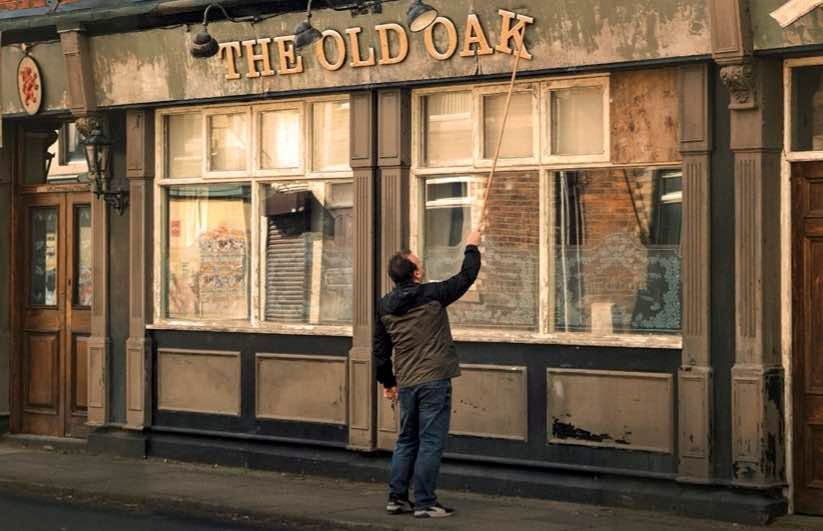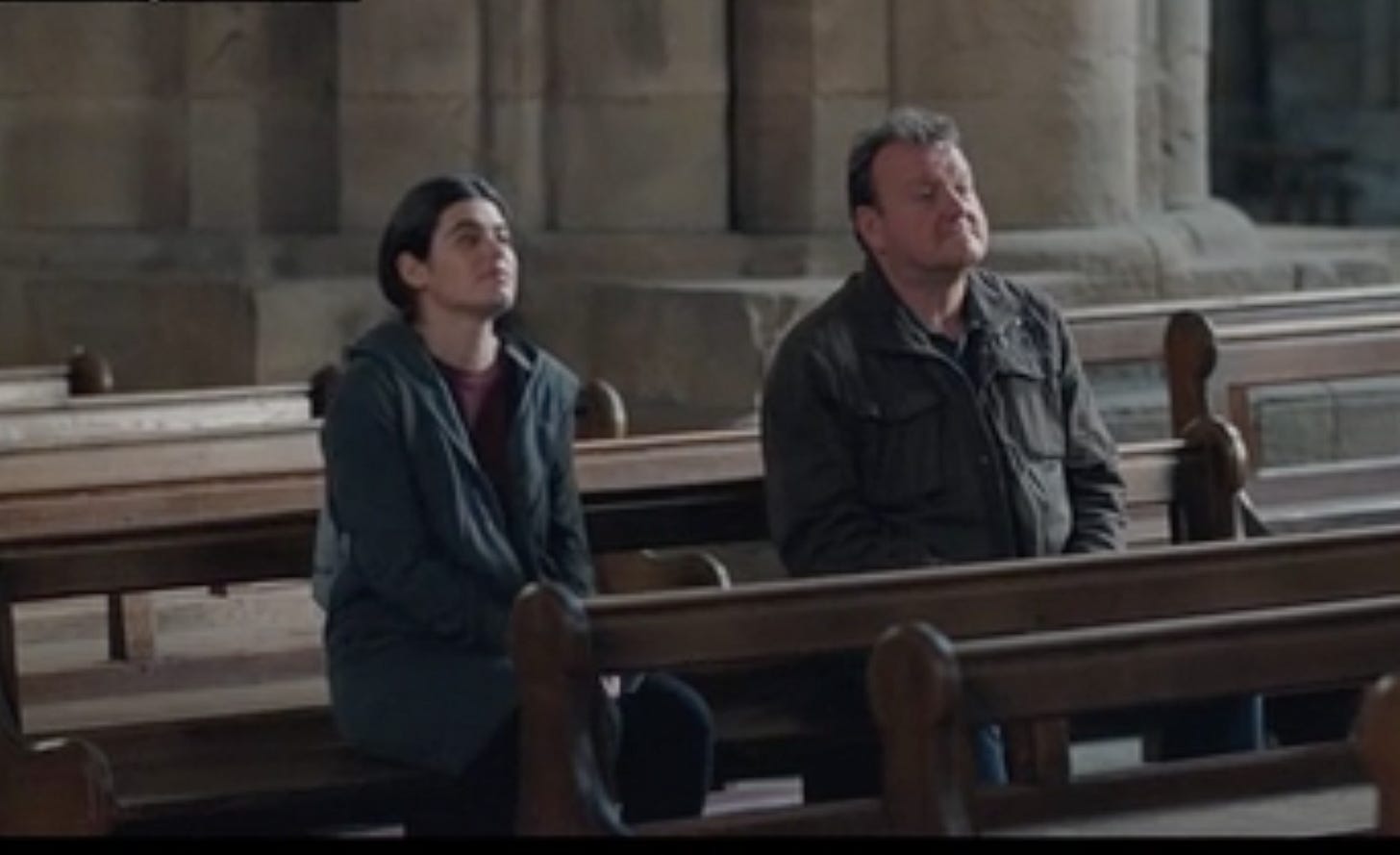Beyond Naiveté: The ‘Ideal’ Gospel – Part 11

Spring has sprung. Again. And, whether it’s the pagan celebration of Spring with the goddess Ēostre , or just Easter egg hunts for the kids, or possibly the Christian faith tradition’s annual liturgical observances of Easter, the perennial season comes with the hope and expectation that new life will irrepressibly emerge out of what once was, but is no more. Some may call it resurrection.
The last several commentaries have ruminated on the notion of hope in a world that is in sore need of it. Last time I suggested that what is sometimes perceived as unrealistic idealism – or downright naiveté – is something more; when it comes to what we’ve determined to be the central teachings and life example of the historical Jesus. This includes what I’ve dubbed those meddlesome passages about turning the other cheek, unmerited forgiveness, loving neighbor as self, and renouncing the kind of revolutionary and retaliatory violence we see on the daily headlines.
Instead, Jesus’ revolutionary spirit could be likened to continually and endlessly sowing seeds of faith, hope and charity for a different emergent outcome. In my last commentary I cited Oscar Cullman’s reference to the parable of the secretly growing mustard seed (Mark 4:25). It is one of several scriptural parables attributed to the historical Jesus, about seed-planting; with a realistic harvest of expectation, including barren ground, thorns and thistles, along with fertile soil.*
*For context to the comments to follow, it is suggested one read Matthew 13. Verses 1-8 are deemed to likely be attributable to the historical Jesus; while verses 18-23 are an interpretation and application by Matthew’s early church community.
A Beating Heart of Hope

Famed British filmmaker, Ken Loach (along with writer Paul Laverty), has just released his latest feature film, “The Old Oak.” In that opening scene, the pub owner tries in vain to prop up the sign to his local bar, “The Old Oak.” Meanwhile, a passenger bus has just dumped a horde of foreign-speaking immigrants on the streets of this working-class mining town that’s on the skids. The local inhabitants resent the invasion, along with the loss of their begotten way of life.
If that sounds familiar, it’s a universal tale describing the well-worn dilemma of the wider world we inhabit these days. The storyline, however, will offer a glimpse of a hopeful way forward; as this cinematic tale develops in the relationship between two unlikely strangers – the pub owner and a young female Syrian refugee — through a few simple acts of kindness.
Then, in one scene, the young Syrian refugee wanders into an old Anglican gothic cathedral. While listening to the faint sounds of a children’s choir, she’s almost brought to tears. Gazing across the sanctuary, she finds the pub owner, sitting alone in an empty pew. Sitting down beside him, she sighs, and then shares her thoughts:

“My children will never see the temple in Tadmor. Palmyra. Built by the Romans, and destroyed by the Islamic State. When you have half of your country in rubble and you see this, it makes you want to cry. What will Syria be like in a thousand years? How many years to cut the stones … to lift the weight, to imagine the light? How many brilliant minds? How much sweat? How many people working together? “
She pauses, looks upwards and sighs; as the pub owner simply listens and waits for her to continue,
“Such a beautiful place, makes me want to hope again. When they torture. When they target hospitals, when they murder doctors, when the world stands by and does nothing, that’s when the regime lives. When the world does nothing, that’s what they do to break us. It takes strength to hope, but they want to smash it. It takes faith to hope. We tried to build something new, something beautiful, and look at us. Thrown to the wolves. I have a friend who calls hope obscene. Maybe she’s right. But if I stop hoping, my heart will stop beating.”
A lovely sentiment one might tend to believe is a bit too naive for this world. But instead of simply sitting there the pub owner trudges back to his tavern to renovate a back room into a community-wide dining hall; where two distinctly-different ethnic groups discover a shared sense of community in the form of a common meal.
One cannot help but think this modern cinematic parable is reminiscent of those early post-Jesus / pre-Christian supper clubs; where seeds were planted among the thorns and thistles of this world to feed some hungry hearts and make a feast of it.
Postlude – A Personal Parable
Many years ago, I composed a song for a small, struggling mission congregation; located in a large field of dead and dying walnut trees in an East-Bay San Francisco suburb. The town lies in a valley beneath the largest peak in the area, Mt. Diablo. The tune, with its lyrics, was itself a hope-full parable.
The score can read below, or downloaded here:
Or, you can listen to a recording here
Well, the morning sun comes up, and it breaks across the ridge,
Chasing shadows from the fields along the way.
And the people of the valley, with the sleep still in their eyes
Rise to go about the business of the day.
Hardly noticed in the hustle and the hurry of the day,
In the clamor so he’s hardly even heard
The Sower slowly takes his sack of seeds and, like a gift,
Begins to scatter and to plant with just three words.
And the first of these three words is for our goodness and our growth,
Like a seed so firmly rooted in the earth.
And the word is simply Faith, and we accept it as a gift,
As we journey from the moment of our birth.
You can see it in the faces of the children as they grow,
Young and tender hearts that smile easily,
And their limbs begin to strengthen, and their voices sing aloud,
“Trust the Sower, for the Sower trusts the seed.”
Then between the winter rains, and the scorching desert heat,
Joys and troubles like the seasons of our years,
The Sower still abides with us, and nurtures us with Hope,
And the promise of the harvest we will bear.
For the word of Hope can’t wither, and will never fade away,
As the Sower gently helps us all to see
While the riches of this world can try to choke us with its thorns
The fruit we bear’s a word call Charity.
It is something like the grain that once was scattered in the field,
And is sweeter than the fruit upon the vine.
It’s the Sower’s gift to satisfy our hunger and our thirst,
As we learn to share a little bread and wine.
‘Round the table of the Sower, with our thanks and with our praise
We will gather these three words, and there abide.
Like the Sower we will sow the seeds of faith, and hope and love,
Till we reach the final harvest of our lives.
Now the day is almost over, as the shadows start to fall,
And the people of the valley hurry home.
But beneath ‘ol Devil Mountain dwells a family of faith,
And a vision of the kingdom that will come …
Jb
© 2024 by John William Bennison, Rel.D. All rights reserved.
This article should only be used or reproduced with proper credit.
To read more commentaries by John Bennison from the perspective of a Christian progressive go to the archive section of Words & Ways [http://wordsnways.com]
